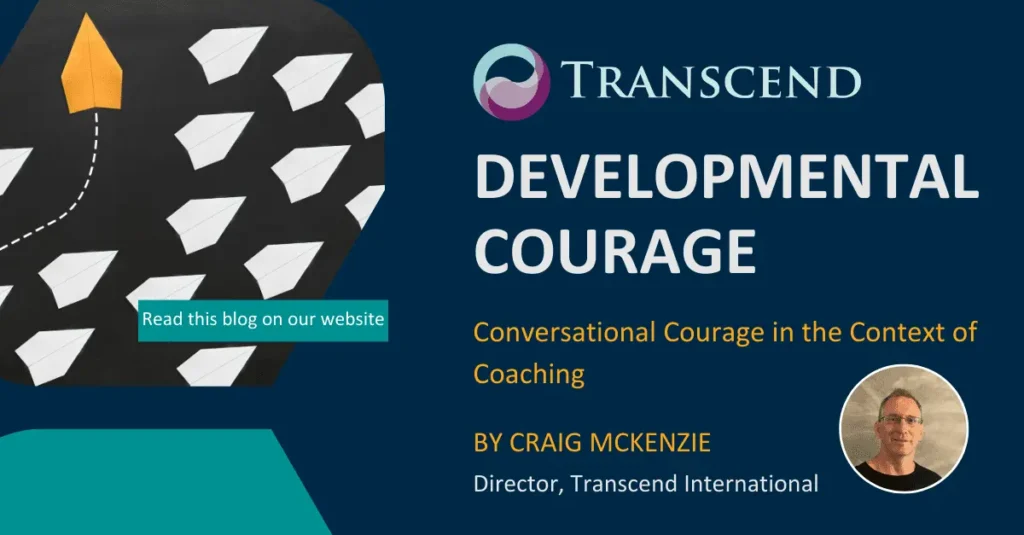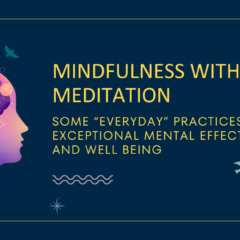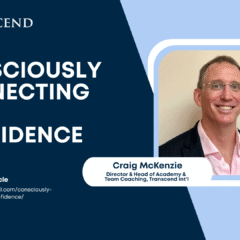Conversational courage is a key dimension of all aspects of our lives in all of the roles that we share. For the purpose of this reflection, our focus is on conversational courage in the context of coaching. This is based on feedback from coaches and clients, mentor coaching, coaching supervision and research into coach maturity.
What follows is a list generated based on the question: “Where do coaches discover that being more courageous would create value for their clients?”. Once we were able to generate the areas of interest for courage, we then converted them into reflective questions for coaches. For the purposes of this article we will focus on one primary expression of courage.
Developmental Courage
Here are two questions to invite exploration:
How does my “stuff” and the resulting assumptions impact my ability to create value for my clients?
Which stories or narratives (self-talk) run while I am coaching and affect my thinking, feeling and way of being?
Some examples of what “stuff” might be include preferences, bias, laziness, comfort, discomfort, strengths, weaknesses, values, drivers and beliefs. We tend to see and do what makes sense to us through our unique perception and experience the world. If we are underdeveloped and subject to our “stuff” then we will tend to be limited by it and therefore it limits the dimensions of our ability to explore and challenge others. Our “stuff” is always present, no matter how well developed we are as coaches and human beings. Being aware, mindful and skilful with it creates value for ourselves and others.
Example: I am most comfortable and confident when I am problem solving and able to provide solutions and this creates the most value for my clients. This sounds nice, and yet if we are in the grip of this version of “stuff” we will tend to look for problems, create them, and look for ways to offer solutions. This means we partner less, give less space and tend to translate the things our client says into a form that allows us to feel comfortable and confident.
Narratives are another expression of “stuff”. Coaches who are unaware, unable or unwilling to explore their narratives and their impact on their ways of thinking and ways of feeling are often unskillful, unwilling or unable to hep their clients do the same.
- Example: My client doesn’t like me or appreciate me and I need to be liked to be effective.
If we are well-developed and able to be objective with our “stuff” we can leverage our perspectives to create value for our clients. This is one of the great benefits of being with a truly skilful coach.
Coaches with the courage to explore their “stuff” will find that it opens dimensions of conversations with their clients previously unavailable to them (and their clients). This then creates new avenues for value creation and meaningful conversations. It is a never ending process. The most effective coaches are not the ones who attain, achieve or arrive. The most effective coaches are those committed to courageously exploring their own learning and development.
Related Posts
MINDFULNESS WITHOUT MEDITATION
5 months ago
Confidence from the Knee Up
6 months ago
Consciously Connecting with Confidence
3 months ago
Embracing Authenticity: The Pathway to Thriving in an Ever-Changing Landscape

In the face of today’s dynamic work environment, remaining true…




